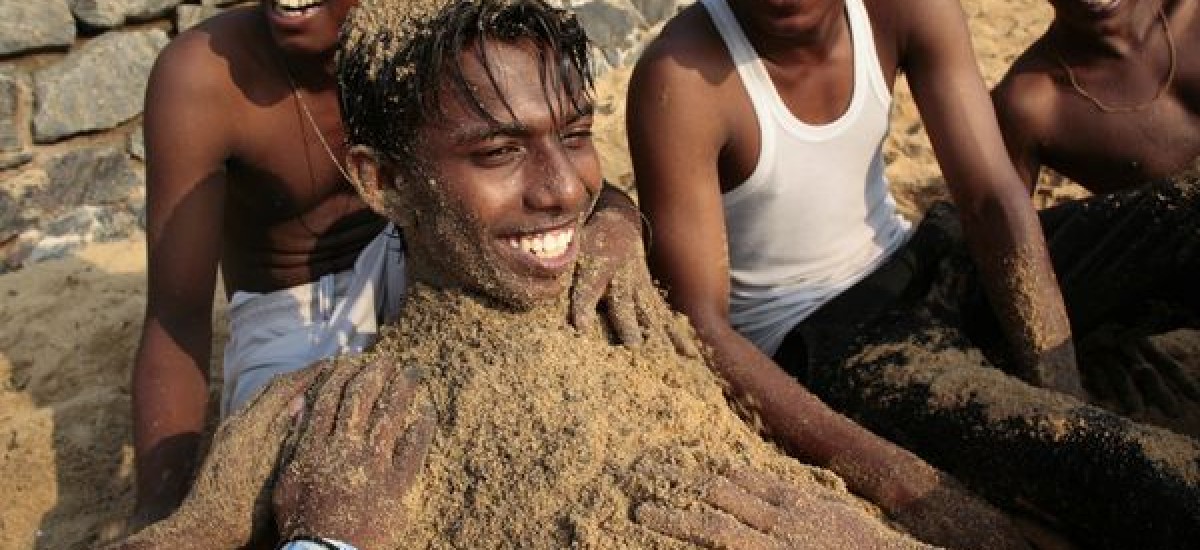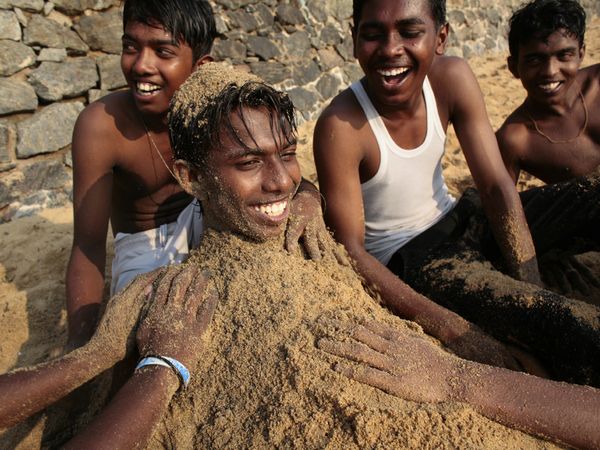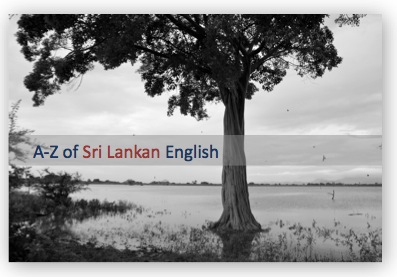Boys will not always be boys! Photo credit: National Geographic
The possessive pronoun “our” is deceptively simple. But who are the “we” that it refers to? The expression our people is a remarkably high-frequency term in Sri Lankan English. On a search of the Groundviews website, the phrase gets around 400 hits, compared to just 331 in the 100-million-word British National Corpus.
In British English, the phrase most often refers to members of a particular organisation (“I’ll get one of our people to call you back”). With reference to nationality, it is rarely used to refer to the whole population of the country, except perhaps in a political context with nationalistic overtones – for example, an anti-immigration tirade bemoaning the plight of “our people”. More often it would be used in the context of a specific group such as Irish Catholics, the Bangladeshi community, etc.
In Sri Lankan English, the expression can convey a sense of patriotism, but it is also used humorously and self-deprecatingly: “Our people of course, don’t you know…” And it frequently refers not to all Sri Lankans, but to the Sinhalese, or the Tamils, or another group defined by ethnicity, religion, caste, etc. The term is sufficiently vague that exactly who it refers to might only be clear to another member of the same grouping, and thus its usage can be insidious.
The expression our boys is also used with a similar range of meanings: it can refer to the national cricket team (and in this sense, it might also be used colloquially in British English to express loyalty to a national or local sports team); it can refer to the Sri Lankan army; and it can refer to the LTTE (also “the boys”, or even “the Boys”).
I have found the phrase our people in a remarkable 17 contemporary works of fiction by 17 different authors, quoted below. These examples illustrate how the unique character of the local variety of English is in part shaped by issues such as the frequency with which certain words and expressions are used, and the accumulated weight of associations that they acquire with repeated use. Further research into how the phrase our people is used in SLE could make an interesting sociolinguistic study.
- “I’ll never emigrate. I’ve seen the way our people live in foreign countries.” (Funny Boy, by Shyam Selvadurai, p.195)
- “You can’t put them with our people, can you? Never know what will happen.” (When Memory Dies, by A. Sivanandan, p.367)
- He wanted our people to have some pride in what they produced … (The Sandglass, by Romesh Gunesekera, p.99)
- “That’s the problem with our people. They don’t know a good thing when they see it.” (The Flower Boy, by Karen Roberts, p.294)
- He said our people were stupid. They didn’t know how to fight a war. (Sam’s Story, by Elmo Jayawardena, p.48)
- “What is there for our people to realize? They have now got used to it.” (Out of the Darkness, by Gunadasa Amarasekara, translated by Vijita Fernando, p.141)
- “Our people have occupied these regions from antiquity.” (The Road from Elephant Pass, by Nihal de Silva, p.130)
- “Whatever it is I’m glad one of our people is getting it.” (At the Water’s Edge, by Pradeep Jeganathan, p.94)
- “What do they know about what our people have suffered and sacrificed for Eelam?” (Distant Warriors, by Channa Wickremesekera, p.53)
- “I never thought that our people could ever sink so low.” (Monsoons and Potholes, by Manuka Wijesinghe, p.356)
- “I can’t understand what’s happened to our people since the tsunami.” (The Banana Tree Crisis, by Isankya Kodithuwakku, p.159)
- “Our people will wake up one day to reality.” (The Sweet and Simple Kind, by Yasmine Gooneratne, p.304)
- She needed it to be a secret. … That is the way with our people, you know. (The Moon in the Water, by Ameena Hussein, p.73)
- “That this is only for the likes of you, safe in your Colombo 7 houses, who’ve done nothing for our people out there, …” – “Our people? Correct me if I’m wrong. Don’t you have that wonderful little thing called a British passport? How does that make you our people?” (Serendipity, by Ashok Ferrey, p.53)
- “Our people will never sort this out. Maybe the Americans can help us get rid of the LTTE.” (Chinaman: the Legend of Pradeep Mathew, by Shehan Karunatilaka, p.236)
- “This is what our people called Fate.” (The Whirlwind, by Ayathurai Santhan, p.19)
- These were not our people. (Beggar’s Feast, by Randy Boyagoda, p.298)
###
A-Z of Sri Lankan English is“an all-new, occasional alphabetical dip“into the variety of English spoken in Sri Lanka, published exclusively on“Groundviews. The original A-Z of Sri Lankan English was published in the travelsrilanka magazine, and can be found here.



